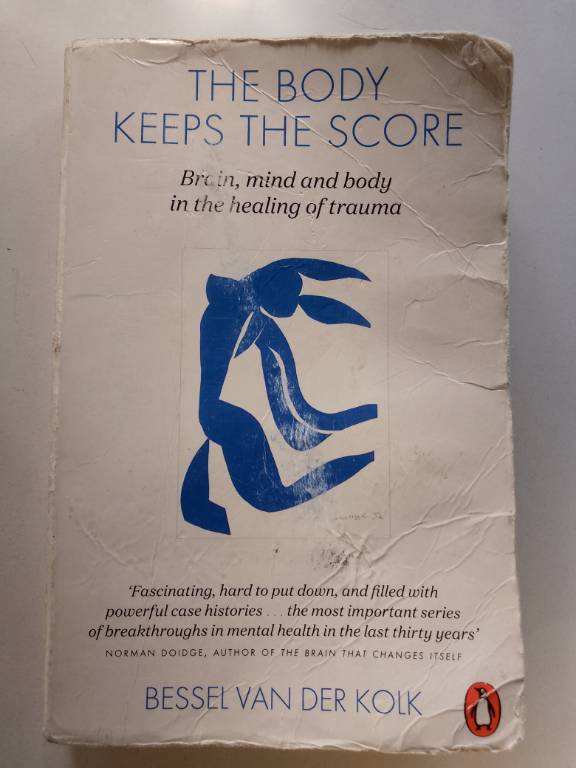Trauma response and pendulation in climate conversations
I just read “The body keeps the score” (Bessel van der Kolk), a book about treating traumatic experiences, and it’s hard to not see the whole world with new glasses. I learned that way more people have experienced childhood trauma than I thought, and that those experiences affect people’s behavior. One such effect being selective amnesia - for example one of Van der Kolk’s patients would state she had “a pretty happy childhood” but when asked to draw a family portrait, kept producing scenes of abuse.

My colleagues and I recently had a lunchroom chat about democracy and power. Backdrop: democracy is currently backsliding. Someone was criticizing people who don’t vote, who end up thinking that their voting is pointless. There was also talk about “the 1%”, or state leaders like Trump or Putin. To me, both those subjects are a bit boring because they can be talked about from a distanced observer’s seat, and don’t cause much reflection on our own behavior. So I said “Look, you feel like the elites have all the power. I agree they have a lot. But we could imagine a power spectrum” - and I drew a line in the air - “with the poorest people suffering famines on one end, and the richest or most influential politicians on the other. Now, someone who lives in a rich country, in a democracy, already has way more power over the future than most of the world’s population. But if you stay at voting every 4 years, you’re only using a fraction of that power. Help out in NGOs or parties, organize yourself in movements - if you could do that but aren’t, I think you’re giving huge amounts of power up voluntarily.”
Something like that. So what happened? One person had a bit of an empty stare, and another conveniently jumped in with a distraction1 that took our attention away from our own ability and responsibility to exercise influence over the future. Now, I work with pretty smart colleagues, so I want to clarify that all their points were very smart and insightful. But it’s really not the first time I see this pattern of attention shift. And now I’m asking myself if it could be compared to a trauma response. If so, then what could be the trauma? The bombardment with terrifying news from the media? Or repeated times when people have tried to do something good, and only got frustration or criticism in return? Maybe it’s something else, maybe it’s different for every person.
One of dr. Van der Kolk’s insights is that he doesn’t need to know the details of a patient’s trauma to begin helping them. It’s more about dealing with their mental and embodied reality here and now. And a technique he brings up is “pendulation” - instead of blazing straight into a patient’s traumatic memories (this will overwhelm them, and they won’t return to the clinic), you need to go at a snail’s pace, to just help them dip their toe in the traumatic memory or experience, and then be able to step back. Then, maybe dip it again, step back and reestablish safety. Maybe next time it’s just the foot…
So for conversations about climate action, I think I need to learn to take a step back. To bring people to difficult insights, yes, but also to pace it, and then guide them back to relative comfort. The reason this is hard is because I learn a lot of things and then I want to share them. But they are not the right things to share with all people at all times.
One complication: The book is about treating trauma from the past. But we have war, climate disaster, and extreme inequality going on around us every day. Can techniques related to trauma relief have any use at all while the trauma is still occurring? At least if the trauma is media though, we can limit our exposure, and then the start of healing should be possible…
-
“But have you heard of the invisible billionaires, who actually control Trump…” ↩